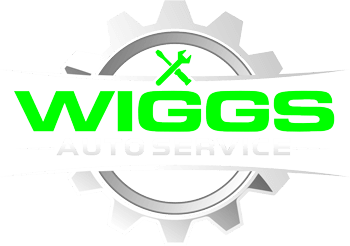Complete Guide to Engine Diagnostics in Fayetteville Metro Area
Modern engine diagnostics have revolutionized automotive repair in the Fayetteville metro area, providing precise identification of engine problems that once required extensive troubleshooting. Understanding comprehensive engine diagnostic services helps vehicle owners make informed decisions about repairs and maintenance, ensuring optimal performance and reliability.
What Makes Professional Engine Diagnostics Essential?
Today's vehicles contain sophisticated computer systems that monitor engine performance continuously. These onboard diagnostic systems generate trouble codes when problems occur, but interpreting these codes requires professional expertise and specialized equipment. Professional diagnostic services go beyond simple code reading to provide comprehensive engine analysis.
Modern engines in the Fayetteville metro area face unique challenges from humidity, temperature variations, and stop-and-go traffic patterns around Fort Bragg and urban areas. These conditions can affect sensor readings, fuel mixture, and emission control systems, making accurate diagnostics crucial for proper repairs.
How Professional Diagnostic Equipment Works
Professional diagnostic systems communicate directly with your vehicle's engine control unit (ECU) to retrieve detailed performance data. These systems access real-time sensor readings, monitor system operations, and identify intermittent problems that may not trigger immediate warning lights.
Advanced diagnostic equipment includes:
- OBD-II scanners for trouble code retrieval
- Digital multimeters for electrical system testing
- Oscilloscopes for waveform analysis
- Pressure testing equipment for fuel and vacuum systems
- Exhaust gas analyzers for emission testing
Professional technicians understand how to interpret diagnostic data in context, considering driving conditions, maintenance history, and symptom patterns to identify root causes rather than just addressing symptoms.
Common Engine Problems Requiring Diagnostics
Engine diagnostic services address various performance issues that affect reliability and efficiency. Check engine lights, rough idling, poor acceleration, and unusual noises all require systematic diagnostic approaches to identify underlying causes.
Complex engine and transmission systems often present interconnected problems where one failing component affects others. Professional diagnostics help distinguish between primary failures and secondary symptoms, preventing unnecessary repairs and ensuring effective solutions.
Comprehensive Diagnostic Process Steps
Professional engine diagnostics follow systematic procedures to ensure accurate problem identification. The process begins with retrieving stored trouble codes and analyzing freeze frame data that captures engine conditions when problems occurred.
Complete diagnostic evaluation includes:
- Visual inspection of engine components and connections
- Retrieval and analysis of diagnostic trouble codes
- Live data stream monitoring during engine operation
- Component-specific testing based on symptoms
- Road testing to verify repair effectiveness
Experienced technicians know that successful diagnostics require combining electronic data with physical inspection and testing. They understand how different systems interact and can identify problems that might not be immediately obvious from codes alone.
Understanding Diagnostic Results and Reports
Professional diagnostic reports provide detailed explanations of identified problems, recommended repairs, and priority levels for addressing different issues. These reports help vehicle owners understand what repairs are urgent versus preventive maintenance items.
Quality diagnostic services explain technical findings in understandable terms, showing how identified problems affect vehicle performance, safety, and long-term reliability. They provide cost estimates for repairs and explain warranty coverage for diagnostic work and subsequent repairs.
Benefits of Early Diagnostic Testing
Regular diagnostic testing helps identify potential problems before they cause complete failures or expensive damage. Modern engines store pending codes and performance data that reveal developing issues before symptoms become obvious to drivers.
For Fayetteville metro area drivers, early detection becomes especially important given local driving conditions. Heavy traffic, summer heat, and humidity can accelerate component wear, making proactive diagnostics valuable for maintaining reliability and avoiding roadside breakdowns.
When to Schedule Diagnostic Service
Schedule professional diagnostics when warning lights illuminate, engine performance changes, or unusual symptoms develop. Don't ignore intermittent problems that come and go, as these often indicate developing issues that worsen over time.
Immediate diagnostic attention is recommended for:
- Check engine or other warning light activation
- Rough idling, stalling, or poor acceleration
- Unusual noises, vibrations, or exhaust smoke
- Decreased fuel economy or performance
- Failed emissions testing
Professional diagnostic testing typically pays for itself by preventing unnecessary repairs and identifying the most cost-effective solutions. Many shops apply diagnostic fees toward repair costs when customers approve recommended work.
Don't let engine problems affect your vehicle's performance and reliability. For comprehensive engine diagnostics in the Fayetteville metro area, contact Wiggs Auto at (910) 665-8928. Our experienced technicians use advanced diagnostic equipment and proven troubleshooting methods to quickly identify problems and recommend the most effective repairs.

